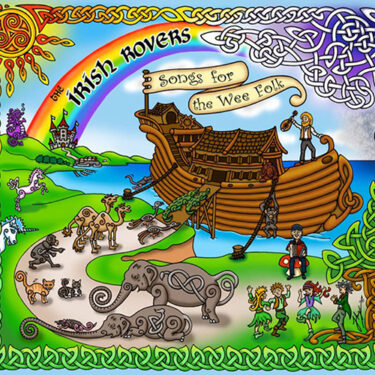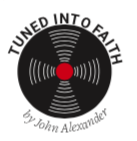
A magical thing happened in 1968 when The Irish Rovers made the pop chart Top 10 with their recording of “The Unicorn.” And how that came to be is truly a wondrous story.
 The Irish Rovers formed in 1964 as a folk quintet, who hailed from Alberta, Canada. The group was comprised of brothers Wil and George Millar, with Wil playing drums and singing, George on guitar, their cousin Jon Millar on bass, Wilcil McDowell on accordion, and Jimmy Ferguson on vocals. The band took its name from the traditional Irish song “The Irish Rover” and ultimately helped popularize Irish music in North America.
The Irish Rovers formed in 1964 as a folk quintet, who hailed from Alberta, Canada. The group was comprised of brothers Wil and George Millar, with Wil playing drums and singing, George on guitar, their cousin Jon Millar on bass, Wilcil McDowell on accordion, and Jimmy Ferguson on vocals. The band took its name from the traditional Irish song “The Irish Rover” and ultimately helped popularize Irish music in North America.
Renowned children’s book author Shel Silverstein, who also happened to be a songwriter, magazine cartoonist, playwright, and poet, wrote “The Unicorn” and originally included it on his 1962 “Inside Folk Songs” album. Silverstein found a way to describe the disappearance of the mythological unicorn, a horse with a horn in the center of its forehead, by incorporating it into the Old Testament biblical tale of Noah’s Ark.
For the Chicago-born and raised Silverstein, the story of the unicorn takes place “a long time ago when the earth was still green; and there were more kinds of animals than you’ve ever seen,” with the loveliest of all being the unicorn. Of course, God tells Noah that because of all the sins and pain in the world He was going to make it rain profusely, and directs Noah to build a “floating zoo.”
The chorus of the song is infinitely familiar and has become a staple of St. Patrick’s Day celebrations as bands in pubs across the continents play while revelers sing the chorus: “And there were green alligators and long-necked geese; some humpty-backed camels and some chimpanzees; Some cats and rats and elephants, but sure as you’re born, the loveliest of all was the unicorn.”
Well, ultimately we learn that the reason there are no unicorns to be found today is that the unicorns were too busy hiding and playing silly games to make it onto the ark. And although the lyric was included in Silverstein’s now-classic 1974 children’s book “Where the Sidewalk Ends,” there is something disturbing about the ark leaving as the waters rise and the unicorns float away.
And while it took “The Unicorn” six years to find its way to The Irish Rovers, both Silverstein and the Rovers had already become popular in their own right by 1968. Aside from his cartoon work and his children’s books, Silverstein had forged a successful career as a country music songwriter.
“The Unicorn” was also recorded by a number of artists including country music Hall of Famer Bobby Bare, who actually recorded a full album of Silverstein songs entitled “Lullabys, Legends, and Lies.” It included the No. 1 hit “Maria Laveau,” about a voodoo queen from the Louisiana bayou who performs her own magic on “Handsome Jack,” who had come to the swamp to swindle her, and the epic saga “Rosalie’s Good Eats Café,” about what goes on at a late-night truck stop.
Additionally, Silverstein’s “Sylvia’s Mother” was a No. 5 pop hit for Dr. Hook & the Medicine Show in 1972. But aside from “The Unicorn,” Silverstein’s most impressive songwriting credit may be “A Boy Named Sue,” for Johnny Cash. The classic story was Cash’s biggest hit, making it to No. 2 on the pop chart in 1969. In fact, Cash recorded a number of Silverstein songs over the years, including “25 Minutes to Go,” “Boa Constrictor,” both from Silverstein’s Inside Folk Songs album, and “Let There Be Country” in 1976, among others.
The Irish Rovers’ first album, appropriately titled, “The First of the Irish Rovers,” was released in 1966 and included the song from which the group derived its name, “The Irish Rover.” It’s a traditional Irish ballad popularized by The Dubliners and The Clancy Brothers & Tommy Makem that tells the tale of the ill-fated passengers aboard a large sailing ship called the Irish Rover that set sail from Cork, Ireland, headed for the “Grand City Hall of New York” in 1806.
But it was with their second album release, The Unicorn, the group found success in America as the record produced the hit title single and made it to No. 24 on the pop album chart. The B-Side of “The Unicorn” was “Black Velvet Band,” a popular story song covered by The Dubliners, that finds the song’s narrator relating the story of how a young lady charmed him after a night of drinking and handed him a piece of stolen property that caused him to be arrested and spend seven years in jail. The song serves as a warning to other young men in the lines, “Her eyes they shone like diamonds, I thought her the queen of the land; And her hair hung over her shoulder tied up in a black velvet band.”
The group’s second charting single, “(The Puppet Song) Whiskey on a Sunday,” reached No. 75 on the chart and tells the story of an old puppeteer who drinks buttermilk through the week and can’t wait to enjoy his whiskey on Sunday. Sadly, the old man in the song dies in 1904, but sometimes we are told if you are passing by where he worked you can still hear him sing, “Come day, go day, I wish in my heart it was Sunday; Drinkin’ buttermilk through the week and whiskey on a Sunday.”
The B-Side of “Whiskey on a Sunday,” is the more serious “The Orange and the Green,” about the singer’s mixed-up heritage having a Protestant father and Irish Catholic mother from County Cork. Apparently, as the song relates, everything went well until the singer was born, and that’s when things changed, leading to “the biggest mix-up that you have ever seen; my father he was orange and my mother, she was green.”
The narrator relates how “I was christened David Anthony, but still in spite of that, to my father I was William, while my mother called me Pat.” The song’s humor tries to defuse the tension that exists between Irish Catholics and Protestants, focusing on humor to put the point across in lines like, “My parents never could agree about my type of school; My learning was all done at home, that’s why I’m such a fool.”
Between 1966 and 1979 the group released 13 albums. In 1980 they shortened their name to The Rovers and released their second-biggest charting single, “Wasn’t That a Party.” It reached the Top 40 in 1981 and helped revive the group’s career. The now-familiar barroom favorite is quite possibly the most enjoyable song about a hangover ever recorded. It opens with the singer questioning, “Could have been the whiskey, might have been the gin; Could have been three or four six-packs, I don’t know, but look at the mess I’m in; My head is like a football, I think I’m gonna die; Tell me, me oh me oh my, wasn’t that a party?”
So when you prepare to put your St. Patrick’s Day playlist together this year, you can’t go wrong including some songs by The Irish Rovers. And, of course, “The Unicorn” is an essential song for any St. Patrick’s Day event. And it’s all thanks to a multi-talented Jewish songwriter and the Irish band from Alberta who believed in “The Unicorn” and somehow rode it to the top of the music chart.
We may never see a unicorn again, but we can certainly enjoy hearing it sung every St. Patrick’s Day.
